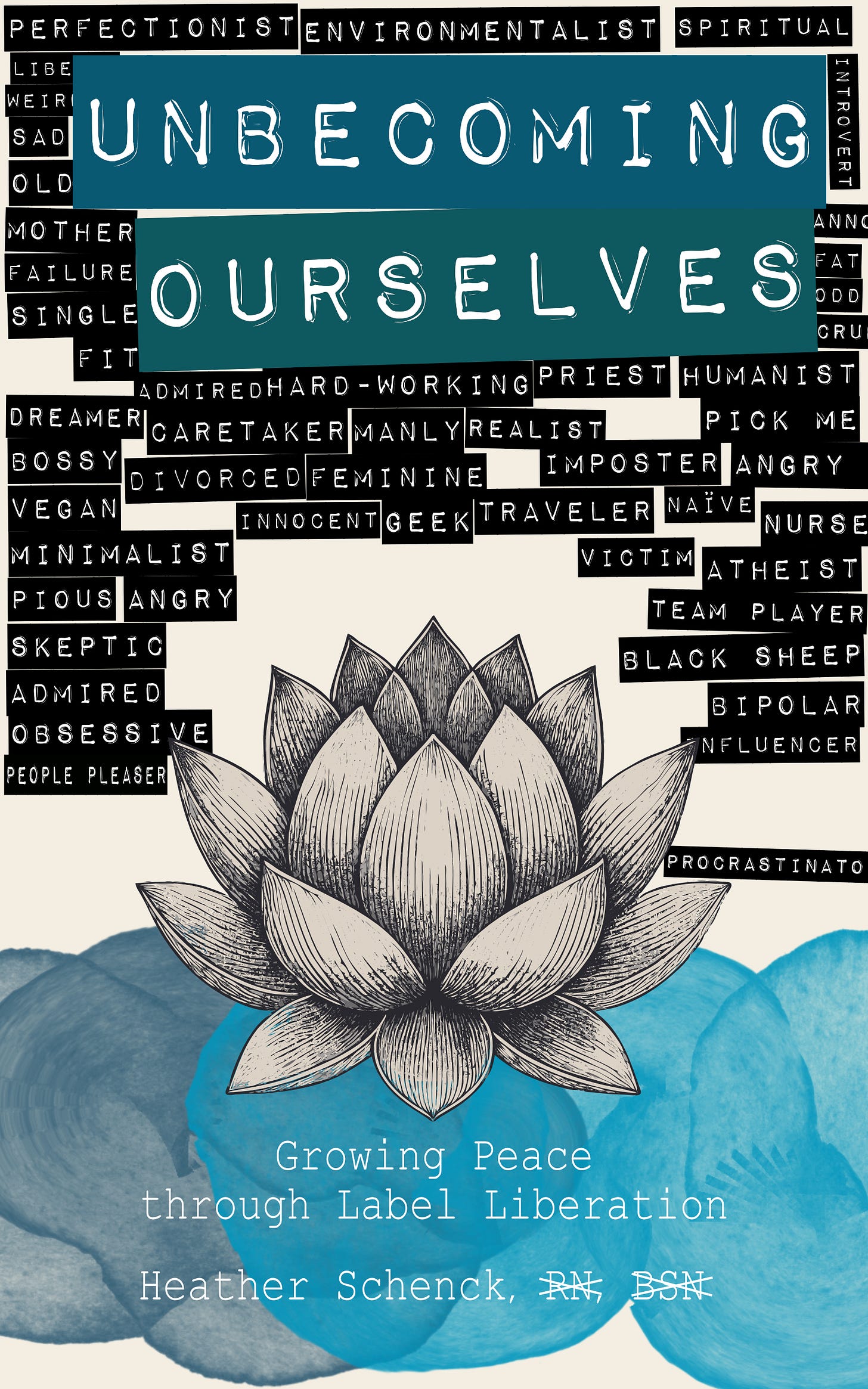I can’t adequately be defined. Sure, scientists have tried to, but I’m more complex than you may think. Reducing me down to my molecular structure only limits your ability to recognize all that I am. In part of my journey, I find myself in constant motion with others like me. Next, I make my way to the surface, gaining enough energy to break free and move quickly away from the others. I rise up, up, up, so very high, where I slowly lose my energy. I discover it is cold up here and quickly cling to others like me. Eventually, too many of us are huddled together and we inevitably break apart and fall back down.
What am I?
I’m a water molecule.
We have so much to learn from nature. When I’ve been on meditation retreats, I’ve gained just as much insight from my dharma teacher as I have from nature itself.
I’d love to attain the wisdom of the trees. They are brilliant. Have you ever spent enough time with a tree to feel like it had wisdom to share? I think that if the trees could tell us just one thing, it would be to stop resisting change. They’d laugh as they reminisce about their early experiences as a seedling and a sapling. They’d tell us stories of their long lineage, passed down from their earliest ancestors. They’d speak in breezy, whispering tones of the joy of opening to transformation.
The year following the birth of my son was enchanting as well as terrifying. I was in new territory without an adequate map. Motherhood presented new obstacles that my old methods of navigating left me feeling lost, scared, and confused. In this new and unfamiliar space, I lost the sense of false security in who I was in the world, and struggled to discover how to go on being.
The old Buddhist parable of the raft illuminates the necessity to let go of things that are no longer serving us. The raft may have served us well when we needed to cross the river, but we’re no longer at that river and the raft is now just dead weight.
Fortunately, when we come to these moments of transition in our lives, we can use these opportunities to be creative. The Tibetan Buddhist tradition describes six bardos, or periods of transition, in each of our lives. The most talked about bardo is the Bardo of Becoming, which is the gap or intermediate space between death and rebirth. Monastics claim that our goal in any bardo is to let go of our attachments to the way things are, to be with our experiences without judgment, and to make choices mindfully.
We can gain a lot of insight in bardos, even if we don’t lay claim to the belief of rebirth. Suppose we consider “death” to be the end of one stage of life, and “rebirth” to be the beginning of another. How might we apply these teachings to reduce our suffering?
Whether we’re in the bardo of becoming a parent, starting a new job, starting a new hobby, or bringing in a new president, we all go through transitions in our lives that call on us to redefine who we “are.” In these moments, discomfort often arises as a response to an extreme level of uncertainty. But if we can learn to mindfully stay with the uncomfortable emotions and pay attention to what is actually happening in the present moment, something new and promising may suddenly arise. After all, since the world is in constant change and we are part of that world, we too are in constant change. Grasping onto a stable idea of “self” is like falling while holding tightly onto a rope; we’ll end up with rope burn. The changes that rip the rug out from under our feet, and the changes that break our hearts can be so wrenching that it disrupts our familiar concepts of who we “are.” But these gaps can serve as a reprieve for our turbulent minds, and give us an opportunity for rebirth, or a new way of being.
There is untapped potential in those who see themselves as solid, in those who can’t see who they are beyond their reflection and history of behavior. Tibetan master Yongey Mingyur said, “If you’re determined to think of yourself as limited, fearful, vulnerable, or scarred by past experience, know only that you have chosen to do so, and that the opportunity to experience yourself differently is always available.”
Bardos are are the fertile ground to which fresh ideas blossom, and new ways of being present themselves. Control and complete stability is an illusion, a false sense of hope we give ourselves. If we can harness equanimity to remain balanced in the midst of transition, we’ll discover creative freedom to redesign our lives and ways of being. Our body can become a guest house for all those uncomfortable emotions, who are offered tea and a nonjudgmental space to rest until they’re ready to leave. When we’ve gained some composure after the shock of the transition, we can inspire our growth by asking ourselves, “What is the reality of this situation, and what makes sense in this moment?” or “Who am I in this situation?”
Tibetan Buddhist scholar Pema Khandro said, “It’s when we lose the illusion of control—a “bardo” state where we are most vulnerable and exposed—that we can discover the creative potential of our lives.”
That transition from cloud to rain may sound terrifying, but man, what a wild ride it will be when we finally just let go.
My book has finally been published!
If my writing resonates deeply with you, please consider upgrading to a paid subscription. This allows me to continue to grow my writing as part of my contribution to bringing mindfulness teachings to the world. Thank you!






This is so relatable. The death of any stage in life can be difficult, maybe because , change can be frightening. However, change can be so freeing. Rebirth brings joy and growth. Thank you for this beautiful reminder.